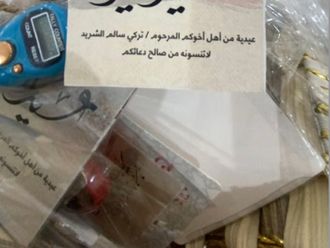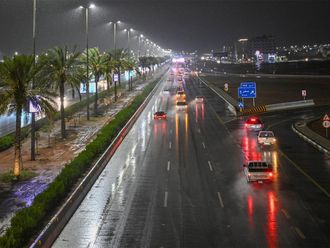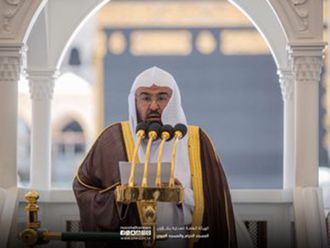Berlin: The German government is close to completing a 100 million-euro (Dh485.36 million) arms deal with Saudi Arabia to sell 30 armoured vehicles, and Berlin’s national security council has already signalled its backing, Bild am Sonntag newspaper reported on Sunday.
Quoting sources it said were involved in the negotiations, the newspaper said Saudia Arabia wants to buy a total of 100 of the “Dingo” armoured vehicles over the longer term.
The armoured vehicles are manufactured by Krauss Maffei-Wegmann and Bruker Daltonik from Leipzig, Bild said.
The national security council, which includes Chancellor Angela Merkel and the ministers of defence, development, economy and foreign affairs, still must give the final approval once the deal is completed, Bild am Sonntag said.
The government never comments on decisions by the council, which meets under strict secrecy.
Earlier this month, Der Spiegel magazine reported Saudia Arabia wanted to buy several hundred BOXER armoured fighting vehicles, another type of armoured vehicle made by Artec, a joint-venture of Rheinmettal Defence and Kraus-Maffei Wegmann.
The magazine suggested the vehicles could be used in confronting possible demonstrations. According to other unconfirmed media reports, Germany gave pre-approval for the export of 270 Leopard 2 tanks to Saudi Arabia in 2011.
Opposition leaders are concerned about German arms being used against demonstrators in Saudia Arabia and in the region.
Saudia Arabia has a fifth of the global oil reserves but tension is smouldering between those who want more social and political change, such as greater rights for women, and powerful conservatives who condemn such reforms as un-Islamic.
The aftermath of last year’s Arab uprisings has undermined old Saudi allies and destabilised the region. Anti-government protests in the Eastern Province have resulted in the deaths of 12 demonstrators and one policeman in shooting incidents this year.
Arms exports are already a sensitive issue in Germany given its Nazi past as well as the role arms makers such as Krupp played in feeding 19th and 20th century wars with exports to both sides of conflicts.
Germany has refrained from exporting heavy weapons to Gulf states in the past because of its relationship with Israel and more recently because of the Arab Spring revolts.
However according to a government report, Berlin approved the export of 5.4 billion euros worth of arms in 2011, after studying requests from different countries, a 14 per cent increase from the previous year. Of those arms, 42 per cent went to countries outside of the European Union or Nato.
In 2011, Saudi Arabian security sources said the country was buying hundreds of tanks from Germany in a multi-billion euro deal that German opposition lawmakers at the time said contravened export guidelines for military hardware.
Peer Steinbrueck, a leader of the opposition Social Democrats running against Merkel in next year’s election, has criticised her government for letting arms exports surge and said he would end that if his centre-left alliance wins.
After the Second World War, successive West German and later united German governments placed tight restrictions on arms exports, especially to regions where there were armed conflicts or where human rights were poorly respected.
“It’s a scandal and extremely dangerous that Germany has become the world’s third largest exporter of weapons,” said Steinbrueck. “We’re even exporting weapons to regions in conflict and to areas where human rights aren’t respected.”












